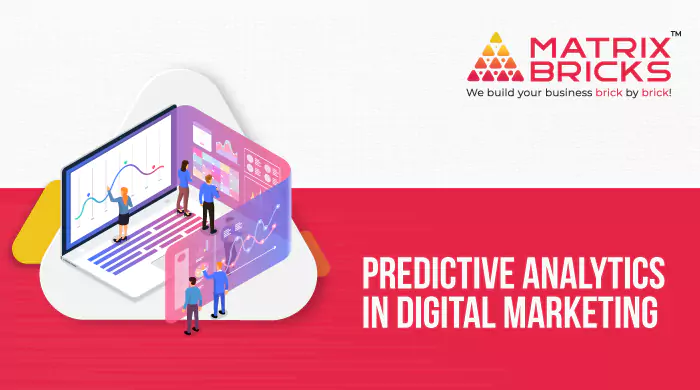
In today’s fast-paced and highly competitive digital landscape, businesses are continuously seeking innovative ways to gain a competitive edge. The key to success lies in understanding and predicting customer behavior accurately. This is where predictive analytics comes into play, revolutionizing the field of digital marketing. By harnessing the power of data and cutting-edge algorithms, predictive analytics empowers marketers to anticipate customer needs and preferences, enabling them to deliver personalized and targeted marketing campaigns that drive exceptional results.

What is Predictive Analytics?
Predictive analytics is an advanced data analysis technique that uses historical data and machine learning algorithms to identify patterns and trends and forecast future outcomes. In the context of digital marketing, predictive analytics leverages customer data, website interactions, social media behavior, purchase history, and other relevant data points to anticipate how customers will respond to marketing efforts.
Anticipating Customer Behavior
One of the primary advantages of predictive analytics in digital marketing is its ability to anticipate customer behavior accurately. By analyzing past interactions and behaviors, predictive models can identify trends and patterns that indicate the likelihood of specific actions. For example, a predictive model may determine the probability of a customer making a purchase, clicking on an ad, or engaging with specific content. Armed with these insights, marketers can tailor their strategies to target the right audience at the right time with the right message.
Personalized Marketing Strategies
In the era of information overload, consumers have grown accustomed to personalized experiences. Predictive analytics enables marketers to deliver precisely that. By understanding customer preferences, interests, and pain points, marketers can create personalized marketing strategies that resonate with individual consumers. Personalization goes beyond addressing customers by their names; it involves delivering content and offers that align with their unique preferences and needs. This level of personalization fosters a sense of connection with the brand and increases the likelihood of customer loyalty and repeat business.
Optimizing Customer Experience
Customer experience is a crucial aspect of digital marketing. Predictive analytics plays a pivotal role in optimizing the customer journey by providing valuable insights into customer behavior at each touchpoint. By understanding how customers interact with a website or app, marketers can identify pain points and areas for improvement. This knowledge enables them to enhance the user experience and create seamless interactions, making it easier for customers to find what they need and complete desired actions. A positive customer experience fosters brand loyalty and advocacy, significantly impacting the overall success of digital marketing campaigns.
Driving Marketing ROI
Return on investment (ROI) is a critical metric for any marketing campaign. Predictive analytics empowers marketers to allocate resources effectively, ensuring that the budget is invested in initiatives with the highest likelihood of success. By understanding which marketing channels, campaigns, or content types are most likely to yield positive results, marketers can optimize their strategies for maximum ROI. Predictive analytics also enables marketers to identify and target high-value customers who are more likely to make repeat purchases or become brand advocates, further driving the overall ROI of marketing efforts.
Challenges and Considerations
While predictive analytics offers a wealth of opportunities for digital marketers, it’s essential to address some challenges and considerations. One of the primary concerns is data quality. For predictive models to provide accurate insights, they rely on clean, accurate, and relevant data. Data integration and data cleansing processes are critical to ensuring the effectiveness of predictive analytics.
Another consideration is data privacy and security. With the collection and analysis of vast amounts of customer data, marketers must prioritize data privacy and adhere to data protection regulations. Transparency and consent are crucial when collecting and using customer data for predictive analytics.

Conclusion
Predictive analytics is revolutionizing the world of digital marketing, enabling businesses to anticipate customer behavior, deliver personalized experiences, optimize marketing strategies, and drive exceptional ROI. By leveraging the power of data and advanced algorithms, marketers can connect with their audience on a deeper level, building lasting relationships and establishing themselves as leaders in their industries.
As technology continues to advance, the potential of predictive analytics in digital marketing will only grow. Businesses that embrace predictive analytics as an integral part of their marketing strategies will be well-positioned to thrive in an increasingly competitive digital landscape. By harnessing the power of predictive analytics, businesses can unlock the secrets to customer behavior and pave the way to success in the digital age.





